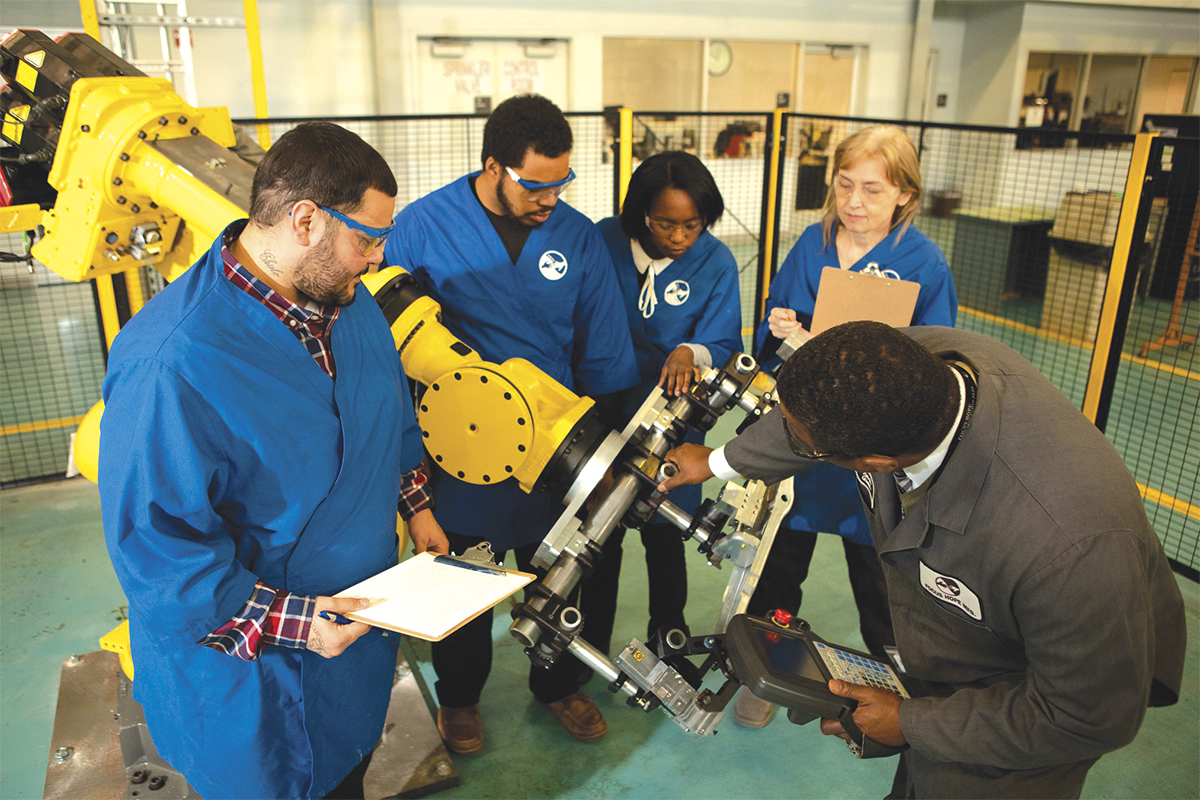WRITER | NICOLETTE CHAMBERY
PHOTO | MOTOR CITY LYRIC OPERA
Reconnecting Detroit’s Youth with Ethics Through Opera
The challenges for any nonprofit are many, from working within a lean budget to keeping the mission relevant to upcoming generations to recruiting an educated board and impassioned staff.
It can take years to master how to balance these competing and ever-changing priorities, but Detroit’s Motor City Lyric Opera has successfully found its way over the last 17 years. Along with a supportive board and the consistent contributions of Aretha Franklin for over 20 years, the Opera brings a highly musical and artistic performance to grade schools with messages that address bullying and promote kindness.
Mary Callaghan-Lynch founded Motor City Lyric Opera in 2002 and has served as executive director since its inception. She takes no salary but redirects all proceeds from the performances back into the organization so that they can reach more communities. Born the 14th of 18 children, she shares that some of her fondest memories growing up centered around music and, increasingly, around opera. Her career includes over 30 performances with the Michigan Opera, informing her mastery of the topic.
The Opera began in the Music Hall Center for the first four or five years, with a sturdy budget of around $100,000. However, partnering corporate sponsors reallocated their funds, so the Opera had to restructure its budget and means of delivering its message. It was important to Callaghan-Lynch that the Opera still be able to reach families and students with shows that touted strong values. They repurposed the show to become an opera-on-wheels program – still fully costumed, and complete with a portable set including a stage and collapsible trees.
Callaghan-Lynch and her team select operas that champion the message they hope to impart to their young audiences. These include “Amahl and the Night Visitors,” “The Goose Girl,” and “Three Billygoats Gruff.” Their hope is that children will apply the messages they hear in each production to the growing challenges and difficulties they face in their own lives.
As schools increasingly employ technological tools to assist project and curriculum applications, these tools
have also led to a new era of online bullying through chat platforms, social media, and email. The repercussions can be catastrophic, with reports as high as nine of out ten students experiencing cyberbullying, only a fraction of which are reported.
Callaghan-Lynch shares, “I was so affected by having the gift of classical music in my life. It was such a treasure, an enrichment, even though we didn’t have a lot of money. Scientific studies show that music enhances the brain and actually helps kids in their academics. For me, it’s twofold: I want them to experience music and have an appreciation for it, but also learn the ethics of communicating kindly with one another and combating the insidiousness of bullying.”
Each production lasts about 35 minutes, with time for discussion both before and after the show. Students are encouraged to engage and ask questions or share solutions in light of the operatic education they just received. The hope is that this will help equip them with language and some strategies to avoid harmful conflicts.
Callaghan-Lynch and her team continue enhancing the production to include digital themes that stretch beyond school, such as Instagram and texting.
Typically, the Opera does not visit a school more than once and can perform up to three productions a day, leaving a lot of potential to cover new ground, which is exactly what Callaghan-Lynch hopes to accomplish.
“The more funding we get, the more underserved communities we can reach, as stated in our mission statement.”
To date, the Motor City Lyric Opera has reached over 70,000 students with their program. They’ve received thousands of thank-you cards over the last two decades from students whose perspectives were transformed.
Motor City Lyric Opera
241 Madison Ave, Box 3
Detroit MI 48226
(248) 647-7976 l MCLOpera.org








